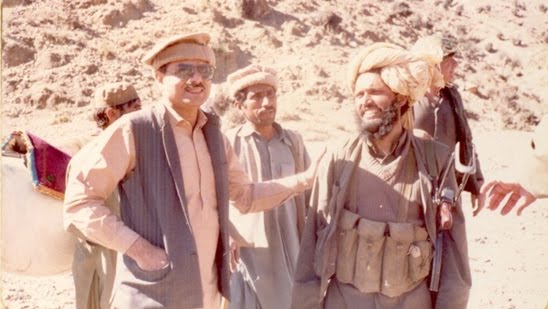
Despite losing over 3,000 soldiers and 40,000 civilians, there was always some confidence that GHQ had a plan and that, when the final accounting was complete, Pakistan would be stronger and better positioned. Use of jihadi groups as proxy fighters in Afghanistan and Kashmir may have resulted in some tallies in the liability column, but these would be more than made up for in the final summing of the assets column. Since the past few weeks, however, the wheels seem to have come off and security analysts are quietly pondering the unthinkable: Has the military lost control?
Coming so soon after meetings between Prime Minister Nawaz Sharif and US President Barack Obama, many security analysts wondered whether the drone strike that killed one of Pakistan’s most wanted men, Tehreek-e-Taliban leader Hakimullah Mehsud, was a sign that the CIA was finally cooperating with the ISI to eliminate threats to Pakistan’s national security. The Nation, hardly a left-wing newspaper, echoed this claim just days after the drone strike.
The drone strike on Hakimullah Mehsud may also indicate that the relationship between Pakistani and American intelligence agencies is on the mend. It is highly likely that the fruitful result was achieved with the involvement of Pakistan’s co-operation in intelligence.
In the past, such reports would have been enough to quiet the hum of anger, but this time it has been largely ignored. If the ISI was complicit in Mehsud’s death – a legitimate goal of the agency – it has only barely managed to keep itself out of the spotlight while Islamist politicians fan the flame of religious fervor to build their own power at the cost of confusing the people about who is the real enemy.
Jamiat Ulema-e-Islam (F) chief Maulana Fazlur Rehman termed the anti-Pakistan terrorist leader as ‘shaheed’, soon followed by Jamaat-e-Islami amir Munawar Hasan. ISPR has demanded an ‘unconditional apology‘ from the Jamaati leader, but the bigger story is that the Islamist politicians now feel emboldened to make such explicitly pro-Taliban statements at all. Clearly, the Islamist politicians are reading from their own script.
This also explains the recent ascent of former ISI-chief and fervent jihadi Hamid Gul to the head of Ex-Servicemen’s Society, where his first major task has been to bring the Islamist parties back under direction of ISI as he himself had first done in the 1990s when he created Islami Jamhoori Ittehad alliance to prevent Benazir Bhutto and her liberal Pakistan People’s Party from taking power through democratic elections. Only Gul, with his close relationships with both ISI and the various jihadi factions under the Taliban umbrella, would have the credibility with both sides to broker an agreement that prevents the Islamists from finally turning completely against the military.
Outright mutiny is a danger that the military has been facing for some time. Following the American raid that nabbed Osama bin Laden, former military officers told reporters that COAS Gen Kayani and DG ISI Gen Pasha were facing open rebellion by a growing number of soldiers who saw America, not the Pakistan Taliban, as the real enemy.
Last August, five Army officers were court martialled after being discovered to be secretly involved with a banned extremist organisation. A Taliban prison break that freed top Taliban militants including a former PAF technician last year was found to have been an inside job. The terrorist attack on PNS Mehran, too, was determined to have involved secret cooperation from within the military ranks. But whereas Bangladesh has sentenced 152 soldiers to death for conspiring to mutiny, though, Pakistan military has held almost no one to account for cooperation in jihadi attacks against military targets.
This morning, unidentified men on a motorcycle killed Haqqani Network leader Nasiruddin Haqqani as he walked down a street in Islamabad. The Haqqani Network, the group of jihadis under the command of Jalaluddin Haqqani, was the militant group former US Chairman Joint Chiefs Admiral Mike Mullen famously termed as ‘a veritable arm of the ISI’, and has been defended in the media as ‘pro-Pakistan’. An Afghan intelligence source has told The New York Times that Haqqani’s death was the result of a family feud. In an interesting twist, however, TTP spokesman Shahidullah Shahid has pointed fingers at the ISI as the agency responsible for Haqqani’s death.
A few years ago, the CIA killing Hakimullah Mehsud and the ISI killing Nasiruddin Haqqani would have been praised as cooperation between the two intelligence agencies. Today, though, the deaths of terrorists are being mourned as Pakistan’s loss. Meanwhile, for possibly the first time, ISPR has been forced to publicly request that Islamist politicians stop praising terrorists responsible for attacking Pakistan’s military. Taken together, a worrying picture is beginning to emerge.
For decades the military has managed a careful balance of support for jihadi groups with which it shared foreign policy objectives (Afghanistan, Kashmir) with opposition to those that threatened its control of domestic security and stability (TTP). Today, an increasing number of security analysts fear that the scales have tipped, and the military has lost control of the jihadi monster it helped create.
![]()





